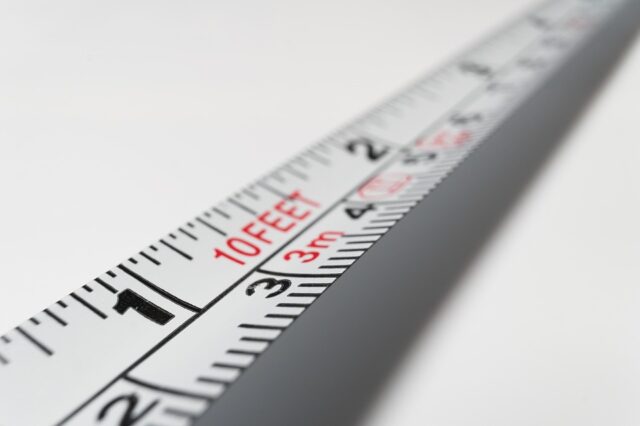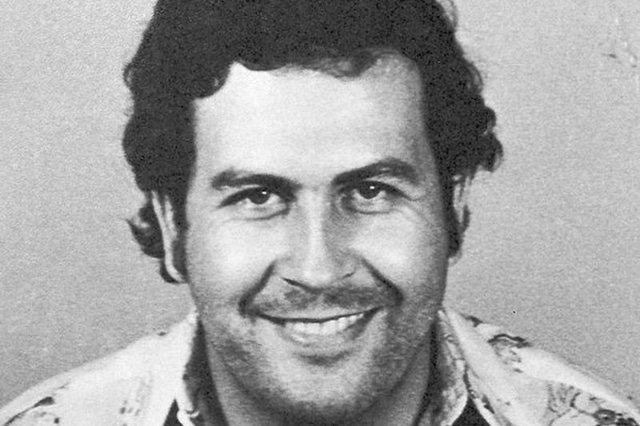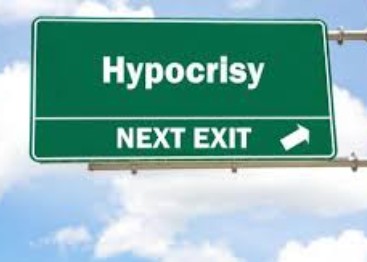10 Unbelievable Statistics About Annual Income Around the World
How Much Is Enough? Strange and Surprising Facts About Annual Income
No matter what your yearly paycheck looks like, chances are you wouldn’t turn down a little more. Most of us are somewhere between scraping by and living comfortably—far from the extravagance of billionaires whose daily income can outpace our yearly earnings.
Income inequality has never been more pronounced, and with that comes some eye-opening facts about what people earn, how they earn it, and how those numbers stack up across the globe. Whether you’re fascinated by the wild wealth of the ultra-rich or curious about the hidden truths of average wages, there’s plenty to uncover when you dig into the world of annual incomes.
10. The Surprising Earnings of the Average Broadway Theater Goer

Live theater has had its ups and downs, especially during the Covid pandemic, which dealt it a significant blow. However, it’s been making a slow but steady comeback, gradually regaining its former popularity.
In the 2022–2023 season, Broadway managed to rake in about $1.5 billion, and the entire U.S. theater industry hit an impressive $8.7 billion in 2023.
Now, let’s take a closer look at the kind of people who are flocking to see plays these days. It might surprise you to learn that the typical theatergoer isn’t your average young person. In fact, people who frequent live theater tend to be in their 40s or around 45 years old on average. It seems that live theater is more appealing to those with a bit more life experience under their belts.
When it comes to Broadway specifically, the financial profile of theatergoers is quite interesting:
- In 2019, the average annual income of a Broadway theatergoer was a whopping $261,000.
- By the 2022–2023 season, that number had increased to $271,000.
Keep in mind that the average ticket price for a Broadway show is around $161. So these theatergoers are not only willing to spend a significant amount on a single ticket but can also afford to do so regularly, at least relatively speaking.
It’s also important to note that going to the theater isn’t something most people do on a daily or even weekly basis. The majority of Broadway audiences consist of tourists, often stopping by for a one-time, memorable experience.
The next time you wonder who’s sitting in the audience watching a show like Spider-Man: Turn Off the Dark, now you have a better idea—they’re likely well-off individuals in their 40s or 50s, enjoying a unique cultural event during a special trip.
9. Finland Fines Speeders Based on Annual Income

Over 40 million Americans get hit with speeding tickets each year. Whether it’s a lead foot or just bad timing, most of us are used to flat fines that don’t change much—$25 here, maybe over $1,000 if you’re really flying. But Finland? They’ve taken a different approach altogether.
In Finland, speeding fines are calculated based on your annual income. That means the richer you are, the more you pay. The logic is simple: a $100 fine might sting for some, but for a millionaire, it’s pocket change. By scaling the fine to your earnings, the punishment stays meaningful no matter who you are.
This system made global headlines in 2023 when Finnish millionaire Anders Wiklöf was fined a staggering $130,000 for going just 18.6 mph over the speed limit. Rather than fight it, Wiklöf accepted it with surprising grace, saying: “I had just started slowing down, but I guess that didn’t happen fast enough. It’s how it goes.”
Finland’s math is pretty straightforward: they take half of your daily income to calculate your fine. If you’re barely scraping by, it might cost you $20. If you’re raking in seven figures? Prepare to pay accordingly. And if you’re going way too fast, the fine can be scaled to cover several days’ income.
It’s a uniquely Finnish way of balancing the scales—and making sure no one’s wallet gives them a free pass to break the law.
8. Your Annual Income Increases With Your Height

We all know life isn’t fair, and one of those unfair advantages some people get? Height. Being tall doesn’t just mean you can reach the top shelf at the grocery store—it might also mean you’ll bring home a bigger paycheck.
It’s been observed in several studies that taller people, especially men, are often perceived as more competent, authoritative, and attractive. That perception, as unfair as it may be, can translate into real financial advantages.
One major study found that for every inch of height above the average, a person’s annual income increases by nearly $800. Over a 30-year career, that can add up to a whopping $166,000 more for someone who’s 6 feet tall compared to someone who’s 5-foot-5—regardless of their gender, age, or weight.
And this trend isn’t limited to one country. Research out of China found that each additional centimeter of height correlated with a 1.3% increase in annual income, which roughly translates to about 3.3% per inch.
7. $60K Per Year Puts You in the Richest 1% of the World

In recent years, income brackets have been given catchy percentage labels—think the top 1%, the bottom 50%, and so on. In the U.S., to make it into the wealthiest 1%, you need an annual income of about $483,000. That’s an elite club, no doubt. But if you take a step back and look at the entire globe, the numbers tell a very different story.
To be in the global top 1%, you don’t need a six-figure salary. In fact, if you earn $60,000 a year after taxes, you’re already there. That might not even get you a modest apartment in some U.S. cities, but on the world stage? You’re among the financial elite.
Back in 2012, it took just $34,000 per year to reach that same global 1% threshold. While the number has risen, it still reveals how skewed the distribution of wealth is worldwide.
Well, it’s all about perspective. Over 900 million people around the world survive on less than $1.25 a day. When you put that next to a $60K salary, the gap is staggering.
You may not feel rich compared to your neighbors—but compared to billions of others, you’re living like royalty.
6. The Surprising Link Between Name Length and Annual Salary

You’re probably already aware that height can have an impact on your earnings – taller people tend to make more money. But what if there was another factor, something as simple as the length of your name, that could also influence your annual salary? Well, it turns out that shorter names might be the key to a fatter paycheck.
If you’re looking for ways to maximize your yearly income, consider shortening your name. Seriously, the shorter your name is, the higher your salary is likely to be. Imagine being seven feet tall and having a name like Max Pip – it sounds like a recipe for financial success!
According to a particular study, a short first name can be the secret to financial success. It seems that each extra letter in your first name comes with a cost – approximately $3,600 per year. This applies not only to truly long names but also to the differences between long and short forms of the same name. For example, Bart is likely to earn more than Bartholomew, and Chris will probably make more than Christopher. So, if you want to reap the financial rewards, it might be wise to pick a shorter version of your name.
What’s even more interesting is that this principle of brevity extends to variations of the same name as well. Michele, for instance, makes more money than Michelle. That seemingly insignificant extra letter can have a significant impact on your earnings, potentially putting you in a less favorable financial position. Of course, there are always a few exceptions that break the mold. Names like Christine for women and Wayne for men don’t seem to follow this pattern. However, for the most part, if you want to earn the most, aim for a name with five or fewer letters.
It’s a strange and somewhat counterintuitive finding, but it just goes to show that there are many factors at play when it comes to determining our earnings. Who would have thought that the length of your name could have such an impact on your financial future?
5. Households Earning Under $13,000 May Spend 3% to 9% on Lottery Tickets

In 2012, a startling statistic made headlines: households earning less than $13,000 per year were reportedly spending up to 9% of their income on lottery tickets. That’s a big slice of a very small pie—especially when you consider that, as of 2023, MIT estimates a minimum livable income for a family of four in the U.S. to be around $104,000 per year. The gap is immense.
The figure came from a PBS documentary, but later scrutiny revealed that the actual number might be closer to 2% to 3%—still shockingly high, considering the income bracket. It seems there may have been some confusion in how PBS reported the data, and trying to pin down the exact number can lead you deep into a statistical rabbit hole.
Regardless of the precise percentage, the takeaway is both sobering and telling: for those struggling financially, the lottery can feel like one of the only chances for upward mobility. When opportunities are scarce, even slim odds can look like hope. So people end up pouring what little money they have into scratch-offs and Powerball tickets, chasing the dream of a better life—no matter how unlikely the payoff.
4. About 1,000 Years of Stagnant Incomes: A Glimpse into the Past

Imagine this: Elon Musk racks up around $14 billion annually. That’s a staggering $1.6 million per hour, $27,000 per minute, or roughly $456 per second.
In stark contrast, the average American earns just under $60,000 a year—a figure that barely scratches the surface of Musk’s hourly earnings. But this isn’t just about the present; it’s about the journey that got us here, especially when we look back at a time when annual incomes were shockingly low.
Let’s rewind the clock to the era following the fall of the Roman Empire. Picture a world where the average person’s annual wage hovered around $500, a figure calculated in terms we’d recognize today. But back then, $500 wasn’t a crisp bill—it was likely a handful of copper coins or perhaps some chicken feet. A far cry from our modern understanding of wealth.
Surprisingly, for nearly 1,000 years, this meager income remained the norm, with very little improvement.
The real turning point came with the Industrial Revolution. This period marked a significant shift, as incomes began to rise across the board. The magic number? A steady growth rate of 2% annually since the 19th century. This seemingly small percentage led to substantial increases in GDP, shaping the economic landscape we see today.
It’s fascinating to think that for the majority of the last millennium, people were stuck in a cycle of financial stagnation, unable to break free from the constraints of low earnings.
As we marvel at the wealth of today’s tech moguls, let’s not forget the long, slow climb that brought us to this point. The history of income is a story of persistence, change, and the incredible advancements that have transformed our lives.
3. 10% of Pablo Escobar’s Annual Income Was Lost to Rats

Losing money is never fun. Maybe you’ve dropped a $20 bill and spent the rest of the day annoyed. Now imagine being Pablo Escobar and losing money—literally—to rats.
According to Escobar’s brother, the infamous drug lord lost about 10% of his annual income to rat damage. Not metaphorical rats, either. Real ones. They had so much money, stored in so many random hideouts and stashes, that rodents would gnaw through stacks of bills. Sometimes water would ruin it. Sometimes it would just vanish, forgotten or destroyed.
And that 10%? It wasn’t pocket change. At the height of his empire, Escobar was making an estimated $21 billion a year. So 10% meant he was losing $2.1 billion annually, chewed up or rotted away—and he didn’t even care.
Put that into perspective. If you make $60,000 a year, imagine casually losing $6,000 and shrugging it off. That was Escobar’s reality: so much cash he couldn’t even keep track of it, let alone protect it from rats.
2. The Modest Earnings of Indie Musicians: A Reality Check

Indie rock has a certain allure that many believe sets it apart as more artistic or pure compared to commercial music. In fact, if an indie rock band manages to secure a record deal, they are often accused of “selling out.” After all, no one wants to be labeled as selling out, right?
By that definition, being an indie musician means you’re not selling anything—at least not in the traditional sense. Unsurprisingly, this is entirely true: the average indie musician earns a very modest annual income, if any.
In Canada, the average indie musician makes about $7,200 per year—a figure that is as modest as it sounds when converted to U.S. dollars. In the United States, the median salary for an indie musician is nearly $13,000, but most earn far less—typically under $6,000 annually.
To even make that much, an indie musician would often need to:
- Go on tour
- Sell merchandise
- Hire a manager
- Maintain multiple income streams at the same time
In short, indie rock is generally not the path to riches. It’s more of a passion project than a financial strategy, and for many artists, that’s exactly what makes it meaningful.
1. Money and Happiness: A Surprising Connection

You’ve all heard the age – old saying, “Money can’t buy happiness.” It’s one of those quotes that has been thrown around so much it’s almost become a cliche. But, have you ever stopped to think about whether having more money could actually make you a bit happier than you are at present? I mean, most of us who aren’t rolling in dough would surely admit that having enough money to pay our bills on time, get rid of pesky debts, and afford the things we’ve been longing for would likely make our lives a whole lot easier and, in turn, happier.
Interestingly enough, someone actually decided to look into this whole money – happiness relationship. And what did they find? Well, it turns out that money can bring you happiness, but only up to a certain point. Now, this point is a bit debatable. Some studies say it’s around $75,000 a year. Imagine making that amount of money. With it, you could cover all your basic needs comfortably, have some left over for the occasional splurge, and not have to worry constantly about financial stress. People who were part of these studies reported feeling happier as their income rose towards this magic number.
However, there’s a twist. After reaching around $75,000, there didn’t seem to be a significant increase in happiness. It was as if people were just collecting more and more things, but their overall sense of well – being remained the same. This study was done back in 2009.
But here’s where it gets even more interesting. Fast forward to 2023, and a Nobel Prize – winning economist had a different take on it. According to this expert, $75,000 just wasn’t enough anymore. They claimed that true happiness could be found at around half a million dollars. Now, that’s a huge jump from the previous figure. Does this mean we all need to aim for such a lofty amount to be truly happy? Well, not necessarily. There are many other factors that contribute to our happiness, like relationships, personal growth, and a sense of purpose. But it does make you think about the role that money plays in our overall happiness equation.
Another interesting aspect to consider is how our perception of money and happiness can change over time. As we go through different stages in life, our priorities and what we consider “enough” money also change. For example, a young person just starting out in their career might think that $75,000 would be a life – changing amount that would bring them endless happiness. But as they get older, get married, have kids, and take on more responsibilities, their needs and expectations might shift. Maybe then, they’d realize that even more money is needed to maintain a certain level of happiness.
In a way, this exploration of money and happiness challenges our traditional beliefs. It makes us question whether we’ve been too quick to dismiss the role of money altogether. At the same time, it also reminds us that money isn’t the be – all and end – all of a happy life. There are so many other things that contribute to our overall well – being. So, the next time you think about money and happiness, remember that it’s a complex relationship that can’t be simply defined by a single number.
























